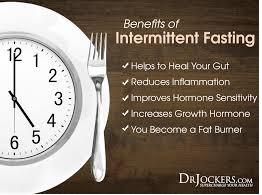 While calories from any food have the potential to increase the risk of obesity and other cardiometabolic diseases, 22 nutrition researchers agree that sugar-sweetened beverages play a unique role in chronic health problems.
While calories from any food have the potential to increase the risk of obesity and other cardiometabolic diseases, 22 nutrition researchers agree that sugar-sweetened beverages play a unique role in chronic health problems.
The disease risk increases even when the beverages are consumed within diets that do not result in weight gain, the researchers say.
It’s just one of the conclusions published in Obesity Reviews in a position paper by a group of researchers who participated in the 2017 CrossFit Foundation Academic Conference.
The task of researchers was to deliberate the question: Are all calories equal with regards to effects on cardiometabolic disease and obesity? The paper provides an extensive review of the current science on diets that can lead to obesity, cardiovascular disease, and type 2 diabetes.
The paper’s sugar-sweetened beverage consensus is particularly relevant in light of a recent legal battle over warning labels on soda, which hinged on the 9th Circuit Court’s determination of whether soda and other sweetened beverages are uniquely harmful to human health or one source of calories among many.
“What’s new is that this is an impressive group of scientists with vast experience in nutrition and metabolism agreeing with the conclusion that sugar-sweetened beverages increase cardiometabolic risk factors compared to equal amounts of starch,” says lead author Kimber Stanhope, a research nutritional biologist with the School of Veterinary Medicine at the University of California, Davis.
Another interesting point of consensus among researchers is the role of the sugar substitute aspartame. The authors agreed that aspartame does not promote weight gain in adults. Stanhope says this might come as a surprise to most people.
“If you go on the internet and look up aspartame, the layperson would be convinced that aspartame is going to make them fat, but it’s not,” says Stanhope. “The long and short of it is that no human studies on noncaloric sweeteners show weight gain.”
The authors also agree that consumption of polyunsaturated (n-6) fats, such as those found in some vegetable oils, seeds, and nuts, lowers disease risk when compared with equal amounts of saturated fats. However, that conclusion comes with a caveat. Dairy foods such as cheese and yogurts, which can be high in saturated fats, have been associated with reduced cardiometabolic risk.
The paper reviews the significant challenges involved in conducting and interpreting nutrition research. “We have a long way to go to get precise answers on a lot of different nutrition issues,” says Stanhope. “Nevertheless, we all agree that a healthy diet pattern consisting of minimally processed whole grains, fruit, vegetables, and healthy fats promotes health compared with the refined and palatable typical Western diet pattern.”
Additional authors include researchers from UC Davis, who were part of an international team of researchers from 11 different institutions.

 Fibromyalgia Treatment
Fibromyalgia Treatment Your Toxic Belly Fat!
Your Toxic Belly Fat!